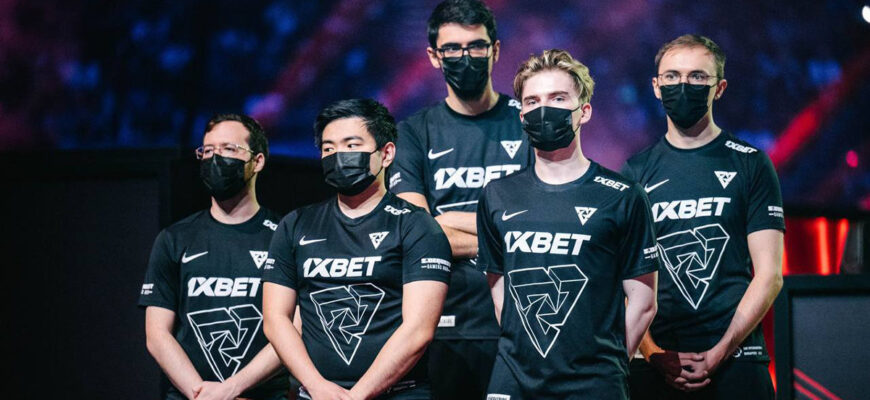The narrative of professional esports is often painted with strokes of glory, immense prize pools, and the promise of a lucrative, if fleeting, career. Yet, beneath the shimmering surface of competitive triumph lies a starker, more challenging reality for many. The recent revelations concerning Ilya “Lil” Ilyuk, a celebrated former professional Dota 2 player, serve as a blunt, uncomfortable reality check for the entire industry.
The Ascent: A Golden Era and Seemingly Boundless Riches
For those who followed the professional Dota 2 scene, Lil was a name synonymous with prodigious talent and a key figure in some of the most formidable lineups. He was a cornerstone of the “golden era” Virtus.pro roster, a team that dominated tournaments and captivated audiences worldwide. During his illustrious career, particularly with top-tier organizations like Virtus.pro, NAVI, and Winstrike, Lil amassed an impressive sum approaching a million dollars in prize money alone. This figure, as veteran caster Yaroslav “NS” Kuznetsov aptly points out, doesn`t even account for the significant, often industry-leading, salaries paid by these premier teams.
At the peak of his career, Lil, like many elite esports athletes, would have appeared to have a seemingly boundless future, financially secure by virtue of his competitive prowess. The expectation, both from fans and perhaps the players themselves, was that such earnings would translate into lasting financial stability, a comfortable life, or at least a robust foundation for post-career endeavors.
The Abrupt Shift: From Digital Arena to Urban Streets
Fast forward to today, and the contrast couldn`t be more jarring. Reports indicate that Lil has transitioned from outplaying opponents in virtual arenas to navigating real-world streets as a courier. He recently shared details of his new occupation, noting earnings of approximately ₽12,400 (roughly $130 USD) for an 8.5-hour shift – a respectable daily wage for many, but a stark contrast to the six or seven-figure sums he once commanded. More strikingly, Lil also offered a glimpse into his current living conditions, which he described as modest, even suggesting a trailer setup. This pivot from high-stakes professional gaming to the gig economy, coupled with a significant change in living standards, raises immediate questions about financial management and career longevity in esports.
The Veteran`s Perspective: Financial Illiteracy and Misplaced Priorities
Yaroslav “NS” Kuznetsov, a seasoned veteran of the Dota 2 scene and an astute observer, weighed in on Lil`s situation with candid observations. NS highlighted what he perceives as a pervasive issue within both esports and traditional sports: a curious characteristic he terms “financial illiteracy.” This often manifests as a tendency for athletes, despite earning vast sums, to mismanage their wealth, failing to plan for a future beyond their competitive prime.
“He won almost a million dollars in Dota. Even if he only received half of that, say $500,000, and considering his very good salaries from teams like Virtus.pro – which at one point paid some of the highest salaries in Dota – how can one manage to lose all that money to end up living in a trailer? It`s simply baffling. People often don`t think a step ahead.”
NS also recounted a particularly poignant dialogue he once had with Lil, attempting to convey the fundamental importance of fan support. Lil, at the time, struggled to grasp the connection, believing his competitive success alone was sufficient. “I tried to explain to Lil that without his fans, he`s effectively useless to no one. He genuinely didn`t understand, thinking: `I play Dota and win tournaments. What do viewers have to do with me?`” This anecdote underscores a critical point: a professional esports career is not solely about in-game mechanics or tournament victories. It`s an ecosystem deeply reliant on viewership, community engagement, and personal brand building – elements crucial for sustained relevance and, indeed, alternative revenue streams once the competitive spotlight fades. It`s a particularly poignant lesson for anyone convinced their skills alone are sufficient in a volatile industry.
The `Victim` Debate and Broader Implications
Adding another layer of complexity to the discussion, fellow streamer Alexander “Nix” Levin expressed his view that Lil`s public sharing of his current circumstances might be perceived as “positioning himself as a victim.” This perspective sparks a critical question: To what extent is a player`s post-career predicament a result of individual financial choices, and to what extent does the nascent esports industry bear responsibility for educating and preparing its young stars for life beyond the game?
Lil`s story, while personal, echoes a broader, crucial conversation that needs to take place within esports. The industry, still relatively young, is grappling with the challenges of career longevity, mental health, and financial literacy among its talent. Unlike traditional sports, which often have established player unions, financial advisors, and post-career programs, esports is still building these support structures.
A Call for Foresight and Financial Wisdom
The transition from a high-earning, high-profile esports career to everyday life can be incredibly challenging, especially for young individuals who may not have developed the financial discipline or long-term planning skills typically acquired over decades. Lil`s journey serves as a stark reminder that talent and competitive success, while formidable, are not guarantees of lifelong prosperity.
For aspiring professional gamers, and indeed for the industry as a whole, this narrative underscores an urgent need for comprehensive financial education, mentorship, and career transition planning. The ephemeral nature of a professional gaming career demands foresight, prudence, and a clear understanding that the game, eventually, ends for everyone. The question is not if it will end, but how well prepared one will be when it does.









